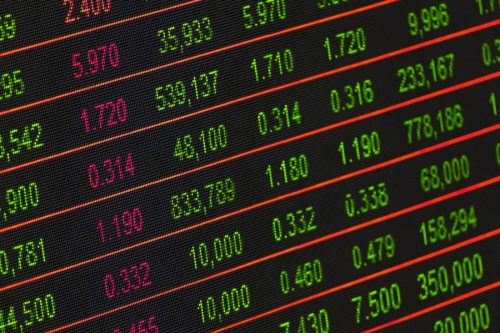The 34% of delegates up for grabs in the Democrat candidacy race on ‘Super Tuesday’ will be the main focus for investors this week. While senator Bernie Sanders is leading the pack, only 5% of the delegates have been contested. With the key contenders focusing their campaigns on 3rd March, Tuesday’s results will be of great importance.
On the data front, the focus on the first three days of the week will be February final purchasing managers’ index readings from the UK, eurozone, US and China. In the flash estimates, the two superpowers started to stutter in the backdrop of Covid-19. While the UK and eurozone held up, anecdotal evidence from businesses pointed to the Coronavirus outbreak impacting them negatively, with stretched supply chains.
January money and credit data from the Bank of England on Monday reveals if mortgage approvals and lending mirrored the recent boom in housing survey data, as well as the health of consumer credit growth.
Ending the week is February US non-farm payrolls data and trade numbers from China.
An impressive US employment reading in January of 225,000 came off the back of average jobs growth of 175,000 per month in 2019. Average earnings also moved back to 3.1% after dipping to 2.9% in December. Consensus is for employment to grow by 173,000 in February and earnings growth of 3.2%.
In January, China’s imports rose strongly relative to exports, signaling strong domestic demand. However, February is unlikely to continue this trend in the backdrop of coronavirus outbreak and raises questions over China’s ability to honour its “phase one” commitments at the end of February.
The almighty dollar
The US dollar (USD) has performed strongly across the board this year, breaching levels last seen in October in recent weeks. Driving USD strength has been robust economic growth, safe-haven flows amid previous Iran tensions, the Covid-19 epidemic and the dollar’s attractive yield relative to other currencies in the ten largest economies, or the G10.
Most market participants envisioned a weaker USD in 2020 and so the recent outperformance would have come as a surprise. Whilst the fundamentals of the US economy appear healthy and would suggest that the recent move has legs, we highlight that the 2020 elections and the uncertainty that comes with this could provide some volatility.
Furthermore, should inflation continue to remain below target and the global economy worsens, an interest rate cut by the US Federal Reserve cannot be ruled out. Such a move may limit the attractiveness of the dollar in the medium term.
For more information contact Barclays Private Bank in Monaco by clicking here or on +377 93 15 35 35
